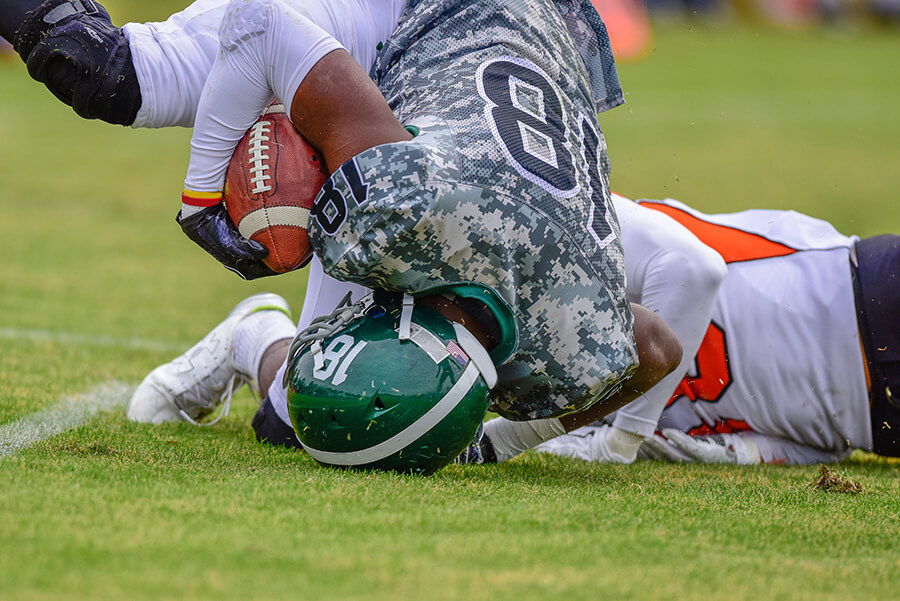Concussions are a common occurrence in sport. Sport participation is an important part of our children’s development and it is our responsibility as health care providers, parents, coaches and trainers to keep our children safe and help them excel as they continue to grow and progress in their sport.
Many athletes have concussion symptoms which resolve within 7-10 days. It can take children longer to recover, and they are more susceptible to concussion than adults. As children age, deficits that were more subtle, can become more evident. Returning to play too soon after a concussion can result in a worsening of symptoms and slow recovery. With more than one concussion the effects are cumulative, worse with each concussion. Returning to play too soon can result in permanent brain injury causing chronic headaches and fatigue, difficultly with balance, coordination, and thinking (memory, concentration, fatigue, behavioural problems) and other changes so that your child could no longer be involved in sport and may have difficulty with recreation, completing school work and employment challenges in the future.
At HCRC, we can assist you to understand concussion and to follow current standards regarding concussion assessment and treatment.
Current guidelines recommend all athletes be removed from play if they exhibit ANY signs and symptoms of concussion and that a step-wise return to sport be followed with a minimum of 24 hours between each step.
Baseline Testing
Why should I consider concussion baseline testing?
- If an athlete sustains a concussion or more than one concussion, especially in a short period, it can cause permanent brain damage. A baseline test allows your health professional to have an objective measure of your usual abilities prior to any concussion. In the unfortunate event that you do sustain a concussion during your season, the post-injury test can be used by your health care provider as one part of the decision making process to determine whether you are ready to return to your sport.
- Baseline testing may include a review of symptoms, previous medical health, basic cognitive screening and physical testing (cervical spine testing, balance and co-ordination). The SCAT test (All ages), ImPACT test (ages 12 and up), and the Paediatric ImPACT test (ages 11 and under), are commonly used and in use at HCRC.
- Baseline testing is completed under the supervision of a Physiotherapist and is covered by your extended health benefits if your benefits include physiotherapy coverage. Discounts are available for teams who wish to book more than 10 players.
- We recommend a baseline test be repeated yearly until age 13 and every other year thereafter until adulthood.
What happens if I sustain a concussion?
- In the unfortunate event that you sustain a concussion, the first step is to visit your family physician who will oversee your care and help to determine whether a visit to a sports medicine physician is required.
- You may be asked to repeat your concussion tests to compare with your baseline.
- You may require a comprehensive physiotherapy assessment to determine if treatment is required. Recommendations may include treatment for concussion symptoms like headaches, loss of balance, neck pain, fatigue and dizziness. Treatment interventions such as manual therapy, exercise and modalities for the cervical spine, autonomic training, balance training and vestibular rehabilitation may be recommended. Education and guidance will be provided regarding the stages of progression from rest towards full participation in school, work and sport related activities.
- Once your symptoms have resolved, reassessment and concussion testing will help guide decision making regarding a full return to activity/sport. Your Physiotherapist will work with your physician who always has final clearance for return to play.

